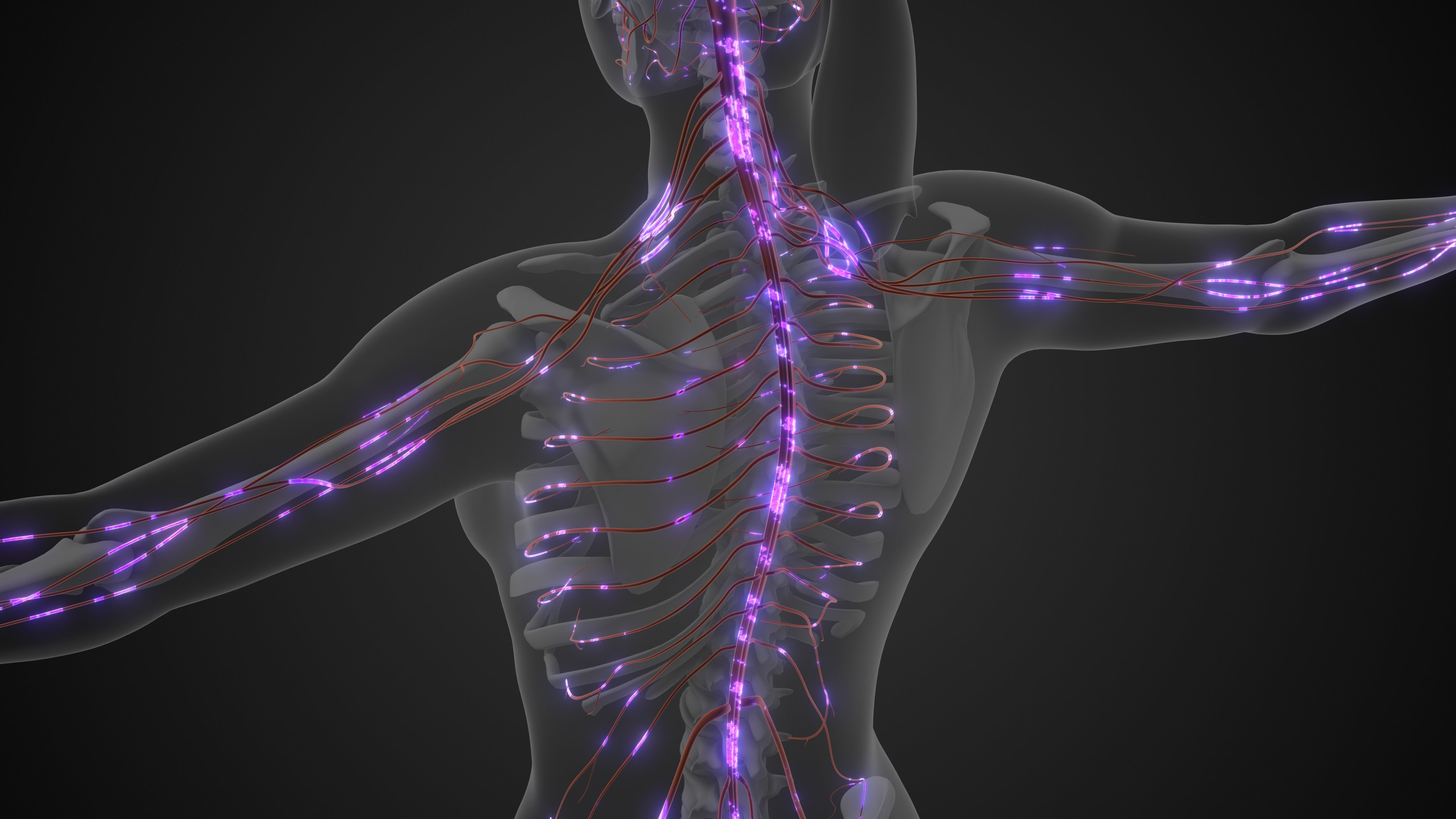What Is the Best Over the Counter Medicine for Nerve Pain?
By Alyse Thompson, M.D.
September 30, 2025

What Is the Best Over-the-Counter Medicine for Nerve Pain?
That tingling, burning, or shooting sensation that won't let up? That's nerve pain, and it can turn even simple, everyday tasks into major challenges. Often linked to arthritis, diabetes, and other chronic conditions, nerve pain affects millions of people in the U.S. If you've ever found yourself typing "What is the best over-the-counter medicine for nerve pain" into your favorite search engine, hoping for a clear answer, you're not alone. The good news? Several non-prescription options really can help you reclaim your day.
What is the best over-the-counter medicine for nerve pain? Best OTC nerve pain medications compared
Here is a list of some commonly prescribed medications:
| Drug | Drug Class | Common Dosage (Adults) | WellRx Savings Card |
| Acetaminophen | Analgesic/antipyretic | 500–1,000 mg every 6 h (max 4,000 mg/day) | WellRx |
| Ibuprofen | NSAID | 200–400 mg every 6 h (max 1,200 mg/day OTC) | WellRx |
| Naproxen | NSAID | 220 mg every 8–12 h (max 660 mg/day OTC) | WellRx |
| Lidocaine patch/cream | Topical anesthetic | Apply to painful area ≤12 h, then 12 h off | WellRx |
| Capsaicin 0.025–0.25% cream | Topical anesthetic | Thin layer 3–4×/day; relief builds over 2–4 weeks | WellRx |
| Diclofenac 1% gel | Topical NSAID | 2–4 g up to 4×/day (max 32 g/day) | WellRx |
| Lidocaine-Menthol Patch | Topical anesthetic | Apply one patch to the affected area for up to 8 hours within a 24-hour period. | WellRx |
Always follow package instructions or your clinician's guidance.
When to get OTC meds for nerve pain
Suppose your pain is new, mild, and clearly linked to a short-term problem (say, post-shingles discomfort or the pins-and-needles that sometimes follow a minor injury), trying an OTC nerve pain medication first makes sense. Pain that lasts longer than a few weeks, grows worse, or interferes with sleep merits a clinician's visit, especially if you also notice weakness, numbness spreading, or bladder/bowel changes. In those cases, you'll likely need prescription help on top of nerve pain medication over the counter.
Types of OTC nerve pain relief drugs
Over-the-counter options for nerve pain come in several forms. From pills and gels to patches and supplements. Here's a closer look at the most common types, what they do, and when to consider each one.
1. General analgesics (acetaminophen)
If you're looking for a simple starting point, acetaminophen is one of the most common over-the-counter medications for nerve pain.
- Pros: Gentle on the stomach, safe with most prescriptions, no anti-inflammatory bleeding risk. Acetaminophen (Tylenol®) works by altering how your brain perceives pain, rather than reducing inflammation. That makes it a solid choice if inflammation isn't the primary cause of your nerve pain.
- Cons: Ceiling effect; large overdoses can harm the liver. Taking more than the recommended dose, especially if combined with alcohol, can lead to severe liver damage. People with liver disease or those who take other medications with acetaminophen should be extra cautious.
Acetaminophen is best for tension-type headaches and low-grade background discomfort. It may help alleviate the general achiness that results from mild nerve irritation or when nerve pain is accompanied by tension headaches or muscle tightness.
2. NSAIDs (ibuprofen, naproxen, diclofenac gel)
When nerve pain comes with swelling or inflammation, NSAIDs are often the go-to OTC nerve pain medicine for quick, reliable relief.
- Pros: Tackle inflammation that often rides shotgun with nerve pain (post-surgery, sports injuries). Nonsteroidal anti-inflammatory drugs (NSAIDs) reduce the production of prostaglandins, chemicals that promote inflammation and pain. This makes them especially helpful when nerve pain is caused or worsened by swelling or tissue injury.
- Cons: Can irritate the stomach lining or raise blood pressure in some people. Long-term use or high doses may lead to gastrointestinal bleeding or kidney issues, especially in older adults or those with pre-existing conditions like hypertension.
NSAIDs are beneficial when nerve pain is associated with inflammation, such as after surgery, an injury, or in conditions like arthritis. They're a good choice when swelling or tissue damage is making nerve pain worse.
3. Topical anesthetics (Lidocaine)
For localized nerve pain, like neuropathy in feet or a patch of burning skin, topical medications are one of the most effective over-the-counter nerve relaxers you can buy.
- Pros: Numbs the skin directly over irritated nerves; minimal bloodstream exposure.
- Cons: Works only where you stick it; skip if skin is broken. It's not helpful for deep or widespread pain, and shouldn't be applied to wounds or infected areas. Additionally, it should be rotated to prevent skin irritation.
Lidocaine creams and patches block nerve signals in the area where they're applied, offering targeted relief without affecting the rest of your body.
4. Topical capsaicin
Topical capsaicin is best for long-term relief of persistent nerve pain, especially in conditions like diabetic neuropathy.
- Pros: Gradually depletes substance P, the chemical that screams pain. Capsaicin cream reduces the amount of substance P in nerve endings, making nerves less sensitive over time. This natural compound, derived from chili peppers, is safe for long-term use when applied correctly.
- Cons: Burns at first; daily commitment for weeks. It initially causes a stinging or burning sensation, which discourages some users. However, with regular use (3 to 4 times per day), most people develop tolerance and experience meaningful relief within 2 to 4 weeks.
It's ideal when you need a non-systemic option and are willing to apply it consistently over time.
5. Dietary supplements (alpha-lipoic acid, B-complex)
Dietary supplements like alpha-lipoic acid and B-complex vitamins are best for supporting nerve health in people with diabetic or nutritional neuropathy.
- Pros: Antioxidant effects may protect nerve fibers. Alpha-lipoic acid (ALA) is a powerful antioxidant that may help repair damaged nerves and improve blood flow to nerve tissues. B-complex vitamins (especially B1, B6, and B12) support healthy nerve function and repair.
- Cons: Some supplements can interact with diabetes meds, and quality varies. Supplement regulation isn't as strict as with prescription drugs, so quality and dosage can vary widely between brands. ALA may also lower blood sugar, so people with diabetes should monitor levels closely and speak with their provider.
They may not offer quick relief, but they can help reduce symptoms and protect nerves over time when used consistently.
What is the strongest over-the-counter painkiller for nerve pain?
The strongest or best over-the-counter (OTC) pain reliever for nerve pain really depends on the type of nerve pain you have and what's causing it. If your nerve pain is close to the surface, like a burning patch after shingles, a lidocaine patch is one of the best options. It works by numbing the skin and blocking pain signals right where you apply it, without affecting the rest of your body. Suppose your nerve pain is caused by inflammation, like sciatica from a pinched nerve or an injury, NSAIDs like ibuprofen can help. These reduce swelling and pressure around the nerve, which can ease the pain. But for long-lasting or widespread nerve pain, even the best OTC for nerve pain may not be enough. Prescription treatments may be more effective, so it's important to check in with your healthcare provider if your pain doesn't improve.
How long do OTC nerve pain medications usually take to work?
For common OTC nerve pain medicine:
- Oral NSAIDs/acetaminophen: 30 to 60 minutes
- Lidocaine patch/cream: 10 to 20 minutes; lasts up to 12 hours
- Capsaicin cream: Burning fades after a few days, but full benefit takes two to four weeks
Here's how to take nerve pain medication over-the-counter
Follow these tips for taking nerve pain meds:
- Read the label every time. Dosing changes between brands
- Use the lowest effective dose and schedule reminders; forgetting a dose and then doubling up invites side effects
- Limit alcohol, especially with acetaminophen, which already asks your liver to work
- Rotate modes. For stubborn flare-ups, layer an oral NSAID with a topical anesthetic.
Know the red flags. If there is a sudden increase in pain, new numbness, or skin color changes, call your healthcare provider.
Natural remedies for nerve pain relief
If you want to try something in addition to regular medicine, simple natural steps may help with nerve pain. Here are a few to consider:
| Remedy | How it May Help | Tips |
| Gentle aerobic exercise | Boosts blood flow, releases endorphins | Try 15 min brisk walking, 5 days/week |
| Mind-body practices (yoga, tai chi) | Lowers stress-related pain amplification | One beginner class or free online session |
| Warm-to-cool contrast baths | Temporarily dulls painful feet/hands | Alternate 3 min warm + 30 sec cool for 15 min |
| Acetyl-L-carnitine supplement | Supports nerve metabolism in diabetes | Ask your pharmacist about 500 mg twice daily |
These options pair well with OTC nerve pain relief and rarely clash with medications.
How to prevent nerve pain
Here are some common ways to help you prevent nerve pain:
- Manage underlying conditions: Good blood-sugar control is your best insurance against diabetic neuropathy.
- Protect your nerves: Wear shoes with cushioning, avoid tight clothing, and take regular movement breaks.
- Vaccinate: The shingles vaccine (Shingrix®) slashes your risk of post-herpetic neuralgia.
- Quit smoking: Nicotine chokes the blood supply to nerves.
- Get plenty of sleep: Poor sleep heightens pain perception.
Speak with your healthcare provider to learn the best ways to prevent nerve pain.
How to choose the best over-the-counter nerve pain medication: 8 practical tips
Choosing the best over-the-counter medicine for nerve pain can feel overwhelming with so many options on the shelf. Here are some simple tips to help you find the best OTC medicine for nerve pain that fits your needs:
1. Know your pain type
Is it burning, tingling, stabbing, or numb? Is the pain in one spot or spread out? Topical lidocaine may work best for surface-level, localized pain, while oral NSAIDs might help more with inflammation-related nerve pain.
2. Think about the cause
If you know what's causing your nerve pain, like sciatica, carpal tunnel, or diabetic neuropathy, it can help guide your choice. Some over-the-counter medicine for neuropathy works better for specific conditions.
3. Start low, go slow
Always begin with the lowest effective dose of any OTC for nerve pain and only increase if needed, without going over the recommended limit.
4. Give topicals time
Creams like capsaicin can take several days or even weeks of regular use to show results. Stick with it before deciding it doesn't work.
5. Watch for interactions
Even over-the-counter meds for nerve pain can interact with prescriptions. Check the label and ask your pharmacist if you're unsure, especially if you take heart or blood-thinning meds.
6. Know the side effects
NSAIDs may upset your stomach, and some topicals can cause skin irritation. Being informed helps you avoid surprises.
7. Consider a combo approach
Using more than one type of treatment, such as a lidocaine patch combined with ibuprofen, can be more effective than using one alone. Just check with your healthcare provider first.
8. Talk to a doctor if needed
If your pain is getting worse, lasting a long time, or not improving with OTC for nerve pain, it's time to see a doctor. They can offer a diagnosis and help you find more targeted options, including prescription nerve pain medication or over-the-counter alternatives.
Get your free WellRx account and start saving on your medications
A ScriptSave® WellRx card can shave up to 80%* off both prescription and non-prescription pain products at pharmacies nationwide. Some members save on name-brand lidocaine patches, while others discover lower prices on supplements or over-the-counter nerve pills. It takes two minutes to sign up, and you pay nothing for the card. Why not keep more cash in your pocket while you feel better?
Frequently Asked Questions
What is the strongest over-the-counter drug for nerve pain?
That depends on the type of nerve pain you're dealing with. For deep, inflammation-related pain, like sciatica or pain after an injury, naproxen is often considered more effective than acetaminophen because it targets both pain and swelling. However, if the discomfort is closer to the skin, such as with post-shingles pain or nerve irritation in a single spot, a lidocaine patch can provide long-lasting relief.
What are the best OTC meds for neuropathy in feet?
Topical capsaicin, diclofenac, lidocaine patches cut to fit, and oral naproxen rank high. Supportive shoes and daily foot checks add protection.
What are the best over-the-counter nerve pills?
Look for sustained-release acetaminophen, naproxen sodium, or a combination of acetaminophen/aspirin/caffeine tablets.
What is the new OTC nerve pain medication?
Currently, there are no newly approved OTC medications specifically for nerve pain. However, the FDA recently approved Journavx (suzetrigine), a new, non-opioid prescription drug, for short-term pain relief. While it's not OTC and not yet approved for chronic nerve pain, early research shows promise for conditions like diabetic neuropathy. For now, diclofenac 1% gel, lidocaine 4% patches, and capsaicin creams remain the most commonly used OTC options for localized nerve pain.
What is better for nerve pain, Tylenol or ibuprofen?
Tylenol (acetaminophen) is gentler on the stomach and suitable for people who can't take NSAIDs. Ibuprofen reduces inflammation, which can amplify nerve pain, so many find it more effective.
What is the best OTC cream for nerve pain?
A 4% lidocaine cream provides quick numbing, while capsaicin cream delivers longer-term relief after daily use.
What works immediately for nerve pain?
For immediate relief of nerve pain, a cold pack, topical lidocaine patches, or creams can provide quick numbing effects by blocking nerve signals at the application site.
Is Biofreeze good for nerve pain?
Biofreeze's menthol offers short-term relief. It cools the skin to distract from pain signals, offering short-term help. It does not directly address the underlying nerve issue, but it can be a handy add-on.
Are there nerve relaxers over the counter?
No true nerve-specific muscle relaxers are available without a prescription, but topical lidocaine and oral NSAIDs are the closest functional equivalents when used properly.
Can I use OTC meds for neuropathy in feet long-term?
Topicals like capsaicin and lidocaine are generally safe for chronic use. Oral NSAIDs should be limited to the lowest effective dose, and you should have periodic check-ins with your clinician. *DISCOUNT ONLY – NOT INSURANCE. The program is administered by Medical Security Card Company, LLC.
Alyse Thompson, M.D., is a freelance medical writer with experience caring for patients in primary and urgent care settings. She also has a master's degree in basic medical science. She has managed acute and chronic diseases and participated in medical and pharmaceutical research.
References
https://my.clevelandclinic.org/health/diseases/15833-neuropathic-pain
https://my.clevelandclinic.org/health/diseases/15833-neuropathic-pain
https://pmc.ncbi.nlm.nih.gov/articles/PMC11556579/
https://pmc.ncbi.nlm.nih.gov/articles/PMC8487862/
https://www.ncbi.nlm.nih.gov/books/NBK564301/
https://my.clevelandclinic.org/health/drugs/23803-vitamin-b-complex-tablets-or-capsules
https://www.cdc.gov/shingles/about/index.html
https://pubmed.ncbi.nlm.nih.gov/10342414/
https://my.clevelandclinic.org/health/diseases/12792-sciatica
Recommended Articles









